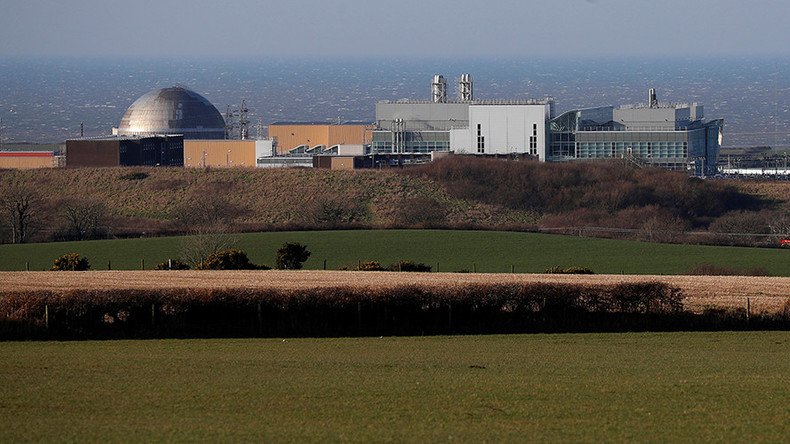Bomb squad called to Sellafield nuclear plant over solvent canister fears

Bomb disposal experts were called to Britain’s Sellafield nuclear power plant after concerns arose over the stability of a number of canisters of solvent.
Sellafield Ltd, the company responsible for the running of the Cumbria plant, said that an area of the site was closed off after staff feared the canisters, which had been stored there since 1992, would become unstable if exposed to oxygen.
READ MORE: Britain threatens to return tons of nuclear waste to EU after Brexit
“The chemicals are contained within a small number of canisters. These need to be removed and disposed of appropriately,” the firm said in a statement.
“The army’s Explosive Ordnance Disposal Team deal with hundreds of these issues every year, recovering chemicals from science laboratories in places like schools and universities.These chemicals are used extensively in many industries and are well understood.”
Sellafield Ltd statement. Please read and share. pic.twitter.com/fJeqmaHw98
— Sellafield Ltd (@SellafieldLtd) October 21, 2017
Industrial solvents, such as Tetrahydrofuran, are potentially flammable in liquid states and can crystallize and become hazardous.
The company said the canisters were buried and then destroyed in two separate batches by the army’s Explosives Ordinance Disposal Team who took them to a safe location on the Sellafield site Saturday.
Sellafield update (16.20)- operational alert ended- cordon removed- operations back to normalPlease read & sharehttps://t.co/PLzUirAa2X
— Sellafield Ltd (@SellafieldLtd) October 21, 2017
Sellafield is home to 126 tons (139 US tons) of plutonium, the world’s largest civilian stockpile.
READ MORE: Dozens of nuclear alerts underreported by British MoD, new study reveals
In 1957, the plant, then known as Windscale, was the site of Britain’s worst ever nuclear disaster when a fire burned for three days, releasing radioactive material into the air that spread across the UK and the rest of Europe.












